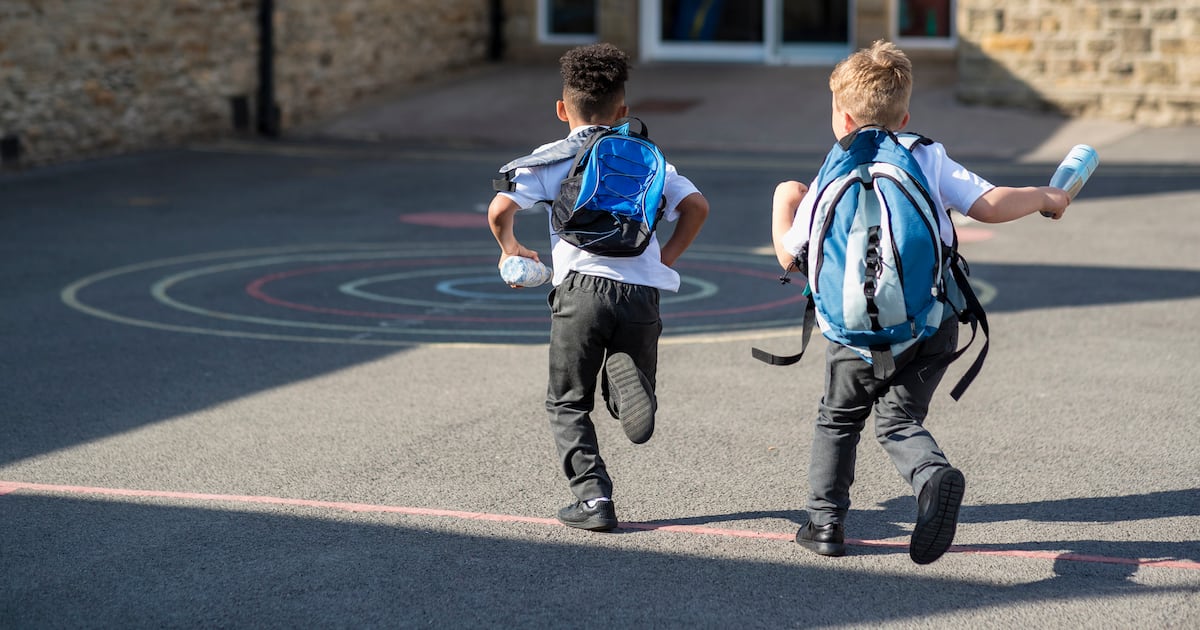Top Stories
Parents Face Rising Back-to-School Costs Despite Free Book Initiative

Parents in Ireland are grappling with escalating back-to-school expenses, despite the implementation of the State’s free schoolbooks scheme. According to data from the charity St Vincent de Paul (SVP), the organization received over 3,340 calls during the summer from parents struggling to afford uniforms, electronic devices, and voluntary contributions to schools. This marks a troubling trend amidst rising educational costs, indicating that further financial support from the government is crucial.
In the previous year, SVP recorded a 26 percent reduction in calls regarding back-to-school costs, attributed largely to the introduction of free schoolbooks for primary and post-primary students. However, with the scheme now extended to senior cycle students, the charity has only noted a modest 3 percent decrease in calls this year, down from 3,442 in 2024.
Increased Financial Burden on Families
Niamh Dalziel, SVP’s research and policy officer, highlighted the ongoing financial strain many families face. She stated that some parents are “cutting back on essentials or going into debt to meet school costs.” While the free books initiative is seen as a positive development, many schools appear to be shifting the financial burden back onto parents by increasing costs for electronic devices and voluntary contributions.
Dalziel noted that schools are now communicating to parents, “Oh, brilliant, you’re not paying for the schoolbooks, we’re going to get some tablets in here, or the voluntary contribution charge is going up.” Research conducted by Grant Thornton in 2023 revealed that voluntary contributions can range from €30 to €550 per child, with an average of €140 across various schools. Dalziel emphasized that these contributions represent a significant cost, and despite their name, there is an “expectation” that parents will pay.
Since September 2023, parents of children in primary schools and special schools have not had to cover the cost of schoolbooks. The scheme was subsequently expanded in 2024 to include all junior cycle pupils in post-primary schools and now covers all second-level students. Nonetheless, Dalziel expressed disappointment that the anticipated financial relief has not fully materialized.
Call for Government Support
The Irish League of Credit Unions conducted a survey in July, revealing that one in three parents expect to incur debt due to back-to-school costs. The findings indicate that parents of primary schoolchildren expect to spend an additional €350 this year compared to 2024, while parents of secondary school students anticipate an increase of nearly €200 per child.
SVP is urging the government to enhance funding support for mandatory electronic devices in schools as well as to eliminate fees for mock exams at the post-primary level. As the Budget 2026 approaches, scheduled for delivery on October 7, 2025, the charity is advocating for a 30 percent increase in the capitation grant for schools. This grant, which is determined by the number of pupils, helps cover essential operating costs such as heating, lighting, cleaning, and insurance.
The Department of Education has been contacted for comment regarding these pressing concerns. In light of the increased financial demands placed on families, it is clear that further action is necessary to ensure equitable access to education for all students.
-

 Top Stories2 months ago
Top Stories2 months agoTributes Surge for 9-Year-Old Leon Briody After Cancer Battle
-

 Entertainment3 months ago
Entertainment3 months agoAimee Osbourne Joins Family for Emotional Tribute to Ozzy
-

 Politics3 months ago
Politics3 months agoDanny Healy-Rae Considers Complaint After Altercation with Garda
-

 Top Stories3 months ago
Top Stories3 months agoIreland Enjoys Summer Heat as Hurricane Erin Approaches Atlantic
-

 World4 months ago
World4 months agoHawaii Commemorates 80 Years Since Hiroshima Bombing with Ceremony
-

 Top Stories2 months ago
Top Stories2 months agoNewcastle West Woman Patricia Foley Found Safe After Urgent Search
-

 Top Stories4 months ago
Top Stories4 months agoFianna Fáil TDs Urgently Consider Maire Geoghegan-Quinn for Presidency
-

 World4 months ago
World4 months agoGaza Aid Distribution Tragedy: 20 Killed Amid Ongoing Violence
-

 World4 months ago
World4 months agoCouple Convicted of Murdering Two-Year-Old Grandson in Wales
-

 Top Stories3 months ago
Top Stories3 months agoHike Donegal’s Errigal Mountain NOW for Unforgettable Summer Views
-

 World4 months ago
World4 months agoAristocrat Constance Marten and Partner Convicted of Infant Murder
-

 Top Stories3 months ago
Top Stories3 months agoClimbing Errigal: A Must-Do Summer Adventure in Donegal









